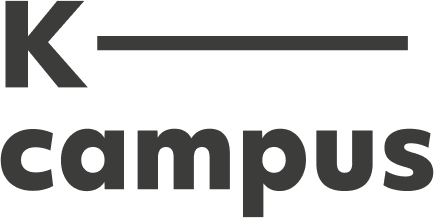![Kim So-yeon, CEO of Eurasian Future Leaders Association [EFLA]](https://uploaded.kcampus.kr/1_6e15f128_963e_4f9c_af6d_02acb844f870_4760da4f7b.jpg)
Central Asia may be one of the lesser-known regions among Koreans.
But at the same time, the region has great potential with its abundant natural resources, the Eurasian Future Leaders Association (EFLA) CEO Kim So-yeon says.
Kim is confident that EFLA can work as a bridgehead to connect young adults from Korea and Central Asian countries to work together on potential projects these countries can undertake to gain mutual economic and political benefit.
Central Asia comprises five countries — Uzbekistan, Kazakhstan, Kyrgyzstan, Tajikistan, and Turkmenistan — located between the Caspian Sea and China and historically known for the Silk Road.
Each country in Central Asia has its own unique cultural heritage, languages, traditions and history, although they share historical and geopolitical ties.
Economically, the region is rich in natural resources, including oil, natural gas, minerals and arable land. These resources contribute significantly to the economies of Central Asian countries. Furthermore, Central Asia is becoming increasingly relevant in global geopolitics due to its strategic location and its potential as a transit hub for trade and energy resources between Europe, Asia and the Middle East.
Collaboration between Central Asia and Korea can hold immense potential due to complementary strengths and shared goals. Central Asia has abundant natural resources, while Korea possesses advanced technology and industrial expertise, offering a synergy for economic growth.
Cultivating a partnership between the two can drive innovation and development in the energy, infrastructure, and technology sectors in both regions. Geopolitically, Central Asia's strategic location offers a gateway for Korea to diversify trade routes and access new markets. In particular, they can enhance their energy security and promote technological innovation and people-to-people exchanges through such a partnership.
The Korea JoongAng Daily sat down with Kim for an interview to hear more about the association and its vision in Korea.
This interview has been edited for length and clarity.
Established three years ago, EFLA is an association that seeks to foster networking and exchange among Korean and Central Asian youth in Korea by offering mentorship and providing various educational and training programs through EFLA Academy.
It is where the association's members invite professors, experts and professionals to give special lectures on Korea-Central Asia cooperation in areas including energy, agriculture, business and information technology.
Being involved in Central Asian and CIS studies, I always wanted to promote and change the perception of Central Asia in Korea. Surprisingly, there are still a lot of people who do not know about Central Asia due to various reasons.
I wanted to establish an association with like-minded people, including Korean and Central Asian nationals, to set up bilateral cooperation between Korea and the Central Asia region. As a result, EFLA opened its doors, and now we are working hard toward promoting public diplomacy through the young generation, particularly college students in their 20s.
Any Korean national or those from Central Asia under 34 who are active, responsible and love their own country can apply to join EFLA. We used to recruit twice a year, but starting in 2024, we are planning to recruit once a year and increase the number of candidates we choose each time.
This question does not apply to everyone because every participant gets, earns or acquires different things through EFLA. Some people find good friends, and others may gain new knowledge. Some students develop their research and analysis skills for future projects, while others improve and sharpen their public speaking skills.
First of all, EFLA mostly consists of Korean and Central Asian students from five countries. This is the first networking platform in the world to combine young Korean and Central Asian adults.
Second, EFLA offers opportunities to communicate in two or more languages.
To be specific, when it comes to Korean participants, most of them either lived or studied in Central Asia or the Commonwealth of Independent States region, and most of the Central Asian students already live in Korea, which means they speak Korean. This means they can communicate more freely without facing cultural or language barriers as much.
Last but not least, most of the Central Asian students who join EFLA are either the Global Korea Scholarship, the Korean Government Scholarship Program, Posco or Samsung Foundation scholarship recipients, which is a testament to their merit as scholars and ability to represent their own country.
We passed many milestones, such as winning the 2023 Korea Foundation Public Diplomacy Project, serving as mentors at the Korea Foundation Pulic Diplomacy Academy, going on interviews with Kazakhstan's major media outlet, Khabar, participating in three interviews with Uzbekistan's Zor TV and establishing relations with Korea Foundation fellows from Kazakhstan, Tajikistan and Turkmenistan.
Additionally, we have worked with the Korean associations of Kazakhstan, Kyrgyzstan and Tajikistan.
In short, we have achieved many things, but there is still a lot of room for improvement and work to do in the near future.
I would like EFLA to exist for another 100 years and make Korea-Central Asia relations as important as Korea-U.S. or Korea-China relations so that more and more people will be aware of the Central Asia region in the long run.
BY STUDENT REPORTER MUKADDAM ISOMOVA [kjd.kcampus@joongang.co.kr]



